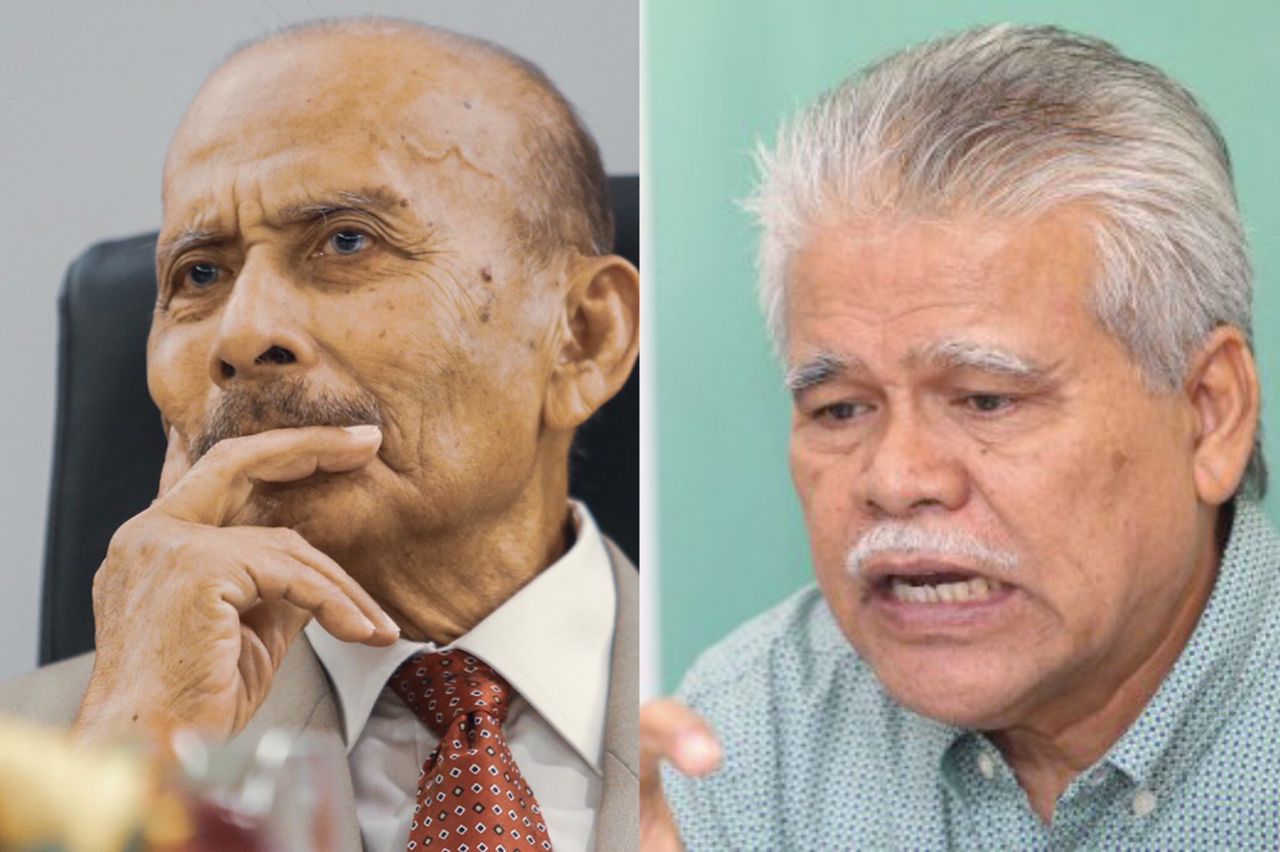RAMASAMY and R. Thinalan’s allegations about vernacular schools goes to show how ignorant they are about the impending court case, said the Malay Consultative Council (Majlis Perundingan Melayu, MPM).
“The principle of the rule of law requires that when a matter is being ventilated in court and pending decision by the judge, the public should ideally refrain from discussing the matter, especially if the tone of discussion is to put the matter on retrial by mass media,” said Tun Hanif Omar and Datuk Dr Hasan Mad.
Tun Hanif Omar is former Inspector-General of Police (IGP) who currently sits on the advisory board of MPM while Datuk Dr Hasan Mad is MPM secretary-general.
“Unfortunately, this principle against subjudice seems to be lost in P. Ramasamy’s appreciation when he wrote his recent column dated Nov 25, 2021, as well as MIC chief youth R Thinalan’s comment published in Focus Malaysia of the same date.”
On Nov 23, lawyer Mohamed Haniff Khatri Abdulla representing two Malay students groups argued that the existence of vernacular schools was detrimental to non-Bumiputeras.
He said that such schools actually reduced non-Bumiputera students’ chances of employment due to their lack of knowledge in Bahasa Malaysia.
The lawyer also said most employers in the private and also public sectors preferred candidates who are fluent in Bahasa Malaysia in terms of speech and writing, and that non-Bumiputeras will be left behind due to difficulties in communicating with each other in Bahasa Malaysia.
“Both Ramasamy and Thinalan made several allegations which goes to show how ignorant they are about the impending court case,” Hanif and Hasan remarked.
“Ramasamy’s attack against the Plaintiffs by calling them ‘chauvinists’ simply because they sought judicial pronouncement on the unconstitutionality of vernacular school system, is simply uncalled for.
“Likewise Thinalan’s attack against the lead counsel acting for the Plaintiffs, Haniff Khatri, alleging him to be ‘clueless’ just because he disagrees with his arguments, demeans the sanctity of the court process.”
Focus of arguments on constitutional issues
According to Hanif and Hasan who were present thorough the hearing at the Kuala Lumpur High Court on Nov 23-24, 2021 there was no single argument by the Plaintiffs “that could by any stretch be said to be chauvinistic or racist in nature”.
Rather, the Plaintiffs’ arguments focused mainly on constitutional issues, particularly on the bindingness of a Federal Court decision in Merdeka University Berhad vs the Government of Malaysia that was decided in 1981, they added.
“In that case, our apex court held that the process of teaching and learning in educational institution is indeed ‘official purpose’ and therefore caught by the requirement that the national language must be used as the main medium of instruction under Article 152(1), and that the use of Chinese for that matter would be unconstitutional.
“Whether or not the principle in Merdeka University’s case is applicable to the vernacular school system is ultimately for the Court to decide, and we wish not to delve further into it, safe to say that looking from the arguments presented, the Plaintiffs are not chauvinists, but rather constitutionalists.”
Hanif and Hasan also called out Ramasamy and Thinalan for their ignorance about the court case, in particular their claims that the vernacular school system is better than national schools and that there is no evidence to show that there is lack of proficiency in the Malay language in vernacular schools.
“In the course of the argument in court, the Plaintiffs referred to at least five affidavits, one of which is by Prof Dr Teo Kok Seong, who clearly showed the correlation between the lack of proficiency in the national language with the vernacular school systems, by looking into the data and statistics of Ujian Pencapaian Sekolah Rendah (UPSR) results.
“There was also evidence in one of the affidavits cited by the Plaintiffs, that in fact, the Chinese vernacular schools have the highest drop-out rate compared to Tamil and National schools, wherein a whopping 25% of students from the Chinese vernacular school system would drop out before the age of 18.”
They went on to point out that another deponent on behalf of the Plaintiffs –WAFIQ’s (International Women’s Alliance for Family Institution and Quality Education) Dr Rafidah Hanim Mokhtar – highlighted discriminatory incidence that happened in vernacular school against a Chinese-Muslim teacher.
None of these evidence were rebutted by any of Defendants, they added.
“How much weight the court would attach towards these evidence, and whether or not in the end the Court would declare vernacular school system constitutional or unconstitutional, is beyond the purview of our discussion here, for we put our trust in the Court to decide on that.
“But certainly, it was highly unbecoming of Ramasamy and Thinalan to say that the Plaintiffs’ arguments ‘is not based on evidence, that the counsel for the Plaintiffs is ‘clueless’, and name-calling the Plaintiffs ‘chauvinist’ when they clearly did not know what happened during the hearing.”
While they do not wish to venture into the merits of the case, nor to speculate on the matter because that it “ultimately for the court to decide”, Hanif and Hasan called upon all parties to allow the country’s judicial system to take its proper course “without unnecessary interference or hindrance such as Ramasamy’s and Thinalan’s disrespectful comments”. – Nov 26, 2021









